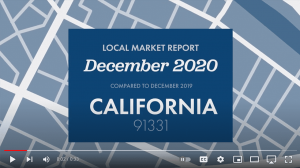Email marketing has long been recognized as a powerful and cost-effective tool for businesses worldwide, and the real estate industry is no exception. With an increasingly competitive market landscape, staying top of mind with your clients and nurturing strong relationships is more crucial than ever. Through effective email marketing, real estate agents can maintain consistent communication, deliver valuable information, and strategically engage prospects and clients, ultimately driving leads and sales growth.
In this in-depth blog post, we will explore email marketing best practices, strategies, and automation techniques tailored specifically to the needs of real estate professionals. By understanding the unique challenges and opportunities of real estate email marketing, agents can amplify their outreach efforts and maximize their chances of success. Topics covered will include crafting compelling email content, implementing segmentation and personalization, automating follow-up campaigns, and measuring your email marketing performance to fine-tune your approach further.
At Zentap, we are committed to empowering real estate agents like you to excel in the digital world with innovative software solutions, expert guidance, and valuable resources designed specifically for your marketing needs. By embracing the email marketing strategies and insights shared in this blog post, you can effectively nurture client relationships, generate high-quality leads, and pave the way for business growth. Embark on your journey towards mastering real estate email marketing with Zentap and unlock the transformative potential of a well-designed digital marketing strategy.
The Power of Content Marketing in Real Estate: Strategies, Tools, and Tactics to Attract Clients and Drive Sales
Content marketing has emerged as a cornerstone of modern digital marketing strategies, particularly within the real estate industry. In this blog post, we will explore various content marketing tactics, tools, and best practices to empower real estate professionals in creating and sharing valuable content that resonates with their target audience and drives business growth.
1. The Benefits of Diversifying Your Content Portfolio
To effectively reach and engage a diverse audience, real estate agents should create various types of content that cater to different preferences and information consumption habits. Consider incorporating the following content formats into your marketing strategy:
- Blog Articles: Regularly posting informative and engaging articles on your real estate blog is an excellent way to establish your expertise, address common questions, and showcase your unique value propositions. Articles also provide valuable SEO benefits, driving organic traffic to your website.
- Videos: In today’s visually-driven world, videos are an increasingly popular content format. From property video tours to neighborhood highlights and buyer/seller tips, videos bring your message to life and offer a personalized touch to your marketing efforts.
- E-books and Guides: Providing comprehensive e-books and downloadable guides on specific real estate topics can help you generate leads while forming a lasting impression on your audience. Leverage these resources as a lead magnet, requiring a contact detail to access valuable content.
Infographics: Visualize complex data or illustrate real estate trends using infographics, making it easy for your audience to digest and share valuable information. Use this eye-catching format to showcase market trends or highlight the benefits of working with your real estate business.
2. Implementing SEO Best Practices for Optimal Content Visibility
To maximize the visibility and reach of your real estate content, you must optimize your content for search engines. Here are some essential SEO best practices to follow:
- Keyword Research: Use tools like Google Keyword Planner or Ubersuggest to identify relevant, high-traffic keywords related to your content topic. Ideally, your chosen keywords should have a balance of search volume and competition, increasing your content’s odds of ranking high in search results.
- On-Page Optimization: Strategically integrate your targeted keywords throughout your content, including headings, subheadings, introduction, and conclusion. However, avoid “keyword stuffing,” as search engines may penalize this practice.
- Meta Tags: Create SEO-friendly meta titles and descriptions, incorporating your targeted keywords. These tags not only affect search engine rankings but also influence user click-through rates.
- Link Building: Internal and external link building can improve your content’s search engine rankings and user experience. Link to reputable external sources to lend credibility to your content, and internally link to related content on your website to keep visitors engaged.
3. Promoting and Distributing Your Real Estate Content
Creating valuable content is just part of the equation – effective promotion and distribution are critical to achieving maximum exposure and engagement. To promote your real estate content, consider the following tactics:
- Social Media: Leverage your social media channels to share and distribute your content, connecting with your target audience and expanding your reach. Encourage followers to engage with your posts and share them with their networks.
- Email Marketing: Utilize your email list to nurture relationships with your subscribers and keep them informed about new content. Share helpful resources, market updates, and exclusive content, driving traffic back to your website or blog.
- Content Syndication: Reach a wider audience by syndicating your real estate content on platforms like Medium or LinkedIn Pulse. This tactic can help you gain exposure to new users and potentially acquire backlinks from reputable sources.
4. Evaluating the Success of Your Content Marketing Efforts
To continually improve your content marketing strategy, regularly assess the performance of your content using analytics tools like Google Analytics or Moz. Key performance metrics to track include:
- Web Traffic: Measure the number of visitors and session durations on your website to gauge overall content engagement.
- Social Shares and Engagement: Monitor the number of shares, likes, comments, and other engagement metrics on your social media posts.
- Conversion Rates: Assess the number of leads and sales generated from content marketing efforts to calculate and optimize your return on investment.
Conclusion
Content marketing offers immense potential for real estate professionals looking to attract clients and drive sales growth. By diversifying your content portfolio, implementing SEO best practices, promoting and distributing your content effectively, and evaluating your content strategy’s success, you can harness the power of content marketing to differentiate your real estate brand in today’s competitive market.
At Zentap, we are dedicated to empowering real estate agents like you with innovative software solutions, expert guidance, and indispensable resources tailored to your marketing needs. Leverage the transformative potential of a strategically crafted email marketing for realtors with Zentap and embark on your journey toward business growth and success.

 Login
Login




